Europe-energy -Textile-Recycling 14-09-2022 - Arhive
Europe-energy -Textile-Recycling
Crude Oil Prices Trend

-Teijin Frontier develops first tire cord made from eco-friendly adhesive and recycled polyester
Teijin Frontier, the Teijin Group’s fibers and products converting company, has developed an eco-friendly tire cord made from an adhesive that does not contain resorcinol formaldehyde (RF), which is harmful to the human body and the environment, and also incorporates a low-environmental impact chemically recycled polyester fiber for rubber reinforcement.
According to the company, this is the world’s first commercialization of a tire cord that combines an RF-free adhesive and a chemically recycled polyester fiber.
Teijin Frontier will now begin to develop reinforcing-fiber applications for various rubber products, including tire cords, belts, hoses and other diverse uses. The company will start test production of its new tire cord in 2023, targeting annual production of 200,000 tons by 2030.
Teijin Frontier, guided by its THINK ECO environmental initiative, is striving to improve its environmental value by developing greener materials and products for applications ranging from clothing to industrial materials. The new tire cord is a result of the company’s increasing emphasis on low-environmental impact solutions.
Due to its use of an adhesive polymer compound instead of RF, the new tire cord reduces the environmental impact of adhesive processing. In addition, due to its strong affinity with fibers and rubber, its adhesion performance is equivalent to that of conventional resorcinol-formaldehyde-latex (RFL) adhesives. Europe-energy -Textile-Recycling
Its chemically recycled fibers, which are made from polymers produced with a chemical recycling method, maintain their strength, fatigue resistance, dimensional stability and heat resistance. Compared to conventional tire cords made from petroleum-derived polyester fiber, the new tire cord achieves the same levels of quality and performance in addition to reducing CO2 emissions during production.
The demand for more eco-friendly tires is growing due to rising environmental awareness. In response, Teijin Frontier has been actively developing eco-friendly materials and products for tires as well as other rubber products. In 2008, it launched the world’s first tire cord incorporating chemically recycled polyester fiber, and in March 2020 the company introduced an eco-friendly rubber-reinforced fiber cord that does not contain RF.
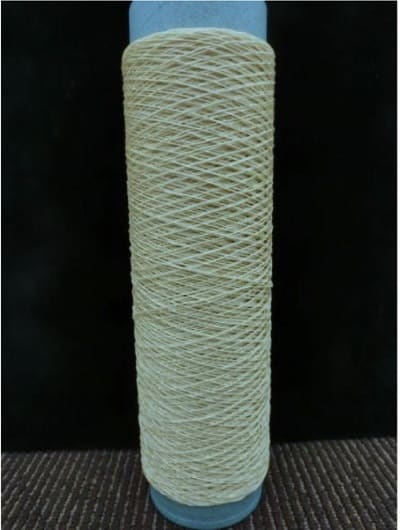
Toppan, a global leader in communication, security, packaging, décor materials, and electronics solutions, and Max Speciality Films Private Limited (MSFL), a Toppan Group company and one of India’s leading film manufacturers, will participate together for the first time in PackEx India 2022, which will be held at the Bombay Exhibition Centre in Mumbai from September 14 to 16. Toppan and MSFL will present the Toppan Group’s barrier packaging business, including GL BARRIER, a market-leading transparent barrier film, to end users such as Indian packaging manufacturers and food producers.
PackEx India is an international exhibition for packaging materials and technology held every other year in Mumbai and New Delhi. It showcases packaging materials and equipment for items such as food, cosmetics, toiletries, pharmaceutical products, and industrial goods. In 2019 approximately 470 companies participated, and the number of visitors exceeded 10,000.
Leveraging GL BARRIER, which enjoys the leading share of the global market for transparent vapor-deposited barrier films, Toppan has a broad-ranging packaging business with production locations in Japan, other parts of Asia, and North America. In May 2021 Toppan published its Medium Term Plan for the period April 2021 to March 2023, the key concept of which is Digital & Sustainable Transformation. One of the priorities defined in the plan is accelerating expansion of the global packaging business by catering to demand for sustainable solutions and establishing networks facilitating local production for local consumption.
MSFL was founded in 1990 and has its headquarters and manufacturing base in Punjab, India. The company manufactures and sells BOPP films, predominantly for food packaging. After acquiring a 49% stake in MSFL in 2017, Toppan participated in the business as a minority shareholder. Toppan increased its stake to 90% in February this year, bringing MSFL on board as a consolidated subsidiary. Toppan is strengthening its business in the growing Indian market for BOPP films, which are anticipated to see demand as a more readily recyclable mono-material for packaging.
Increased environmental consciousness in recent years is driving worldwide demand for sustainable packaging materials. Fusing Toppan’s barrier film and packaging businesses with MSFL’s marketing capabilities and extensive knowledge of the film sector and Indian landscape, the two companies will showcase GL BARRIER and packaging technologies as they look to expand the Toppan Group’s presence in one of the leading markets in the Asia/Oceania region.
Solutions on show
GL BARRIER and related barrier packaging
GL BARRIER is Toppan’s proprietary range of transparent barrier films. With world-class barrier performance enabled by unique vapor deposition and coating technologies and an extensive lineup for diverse applications, GL BARRIER is a leading brand recognized in markets throughout the world, including Japan, Europe, the Americas, and Asia.

-EU countries come together to mitigate Europe’s energy prices
EU countries are working together to address high prices and secure energy supplies for Europeans, who are experiencing an unprecedented energy crisis in the wake of the Ukraine war. During the Energy Council held on Friday, EU energy ministers discussed measures to mitigate high energy prices, and EU and national actions to prepare for winter.
Following the exchange on preparedness measures, ministers concluded that, despite recent developments and in particular the cut of Russian gas flows via Nordstream I, Europe is prepared for this winter, according to an announcement by the European Council.
The main goals of the EU’s response to the energy crisis are to ensure affordable and competitive energy for EU consumers; increase the EU’s energy security and preparedness in the event of emergencies; and strengthen the energy resilience and autonomy of EU countries.
To this end, EU countries are working together on reducing the EU’s energy dependencies by diversifying energy sources and supplies; securing gas supplies while cutting demand for gas; and accelerating the transition to clean energy. Europe-energy -Textile-Recycling
The 27 EU member states have jointly decided to phase out the EU’s dependency on Russian fossil fuels, in the light of Russia’s invasion of Ukraine and of the EU’s climate goals for 2050. With the Versailles Declaration adopted at the meeting in March, leaders agreed to progressively cut imports from Russia by reducing the overall reliance on fossil fuels; diversifying energy supplies and routes, including for liquefied natural gas (LNG); speeding up the development of renewables and hydrogen; improving interconnections between EU energy networks; and increasing energy efficiency.
In 2020, more than half of the total energy available in the EU came from imports, with Russia as the main supplier of fossil fuels to the EU. Reducing the EU’s dependency on Russian fuels is key to strengthening the EU’s energy resilience and autonomy, especially in the event of energy shortages, and provides an opportunity to accelerate the shift towards renewable energy sources.
In response to the leaders’ call for a plan to implement their decision on Russian imports, the Commission presented the REPowerEU plan in May 2022. Under the plan, the EU has established the voluntary EU Energy Platform, which supports coordinated common purchases of energy for all EU countries and some European partners.
New agreements on energy supply have been reached with international partners. The United States and Canada have increased deliveries of LNG to the EU; Norway is providing more gas; a memorandum of understanding for increasing gas deliveries was signed with Azerbaijan; and new deliveries are planned from Israel and Egypt.
As gas supply deliveries become less predictable – with Russia stopping delivery to several EU countries, the Council took urgent measures to secure supply of gas for the winter and cut gas demand in the EU, the Council said elaborating on the EU member nation’s agenda to secure gas supply.
In June 2022, the Council adopted a new regulation on gas storage which aims to ensure storage facilities are filled before the cold season: underground gas storage on member states’ territory must be filled to at least 80 per cent of their capacity by 1 November 2022 and to 90 per cent by the subsequent winters.
The new rules also establish solidarity arrangements between member states to help those countries that do not have storage facilities on their territory. These countries should store 15 per cent of their annual domestic gas consumption in stocks located in another member state.
By the beginning of September 2022, most EU countries had managed to store the required level of gas in their reserves, with the EU average being 82.5 per cent.
On 5 August 2022, EU countries agreed to reduce the overall gas demand in the EU by 15 per cent in the period between August 2022 and March 2023. Under the new rules, EU countries agreed to take measures – defined at national level – to cut demand in gas for a specified period. Europe-energy -Textile-Recycling
As for accelerating the green transition, EU countries are committed to the goals of the European Green Deal to cut EU greenhouse gas emissions and achieve climate neutrality in the EU by 2050. This requires an overhaul of the EU’s energy system and the replacement of fossil fuels by cleaner forms of energy.
The green transition will lead the EU towards lower reliance on fossil fuels; reduced energy dependencies; and a cleaner environment and improved health.
Renewables are key to the energy transition. They are the cheapest and cleanest form of energy available and can be used to generate energy within the EU, helping reduce dependence on energy imports.
In June 2022, EU countries agreed a Council position (‘general approach’) on the Fit for 55 package – the EU’s plan to convert the European Green Deal goals into EU law. New rules, which are currently under negotiation with the European Parliament, will speed up the availability of alternative renewable energy sources and support energy efficiency.
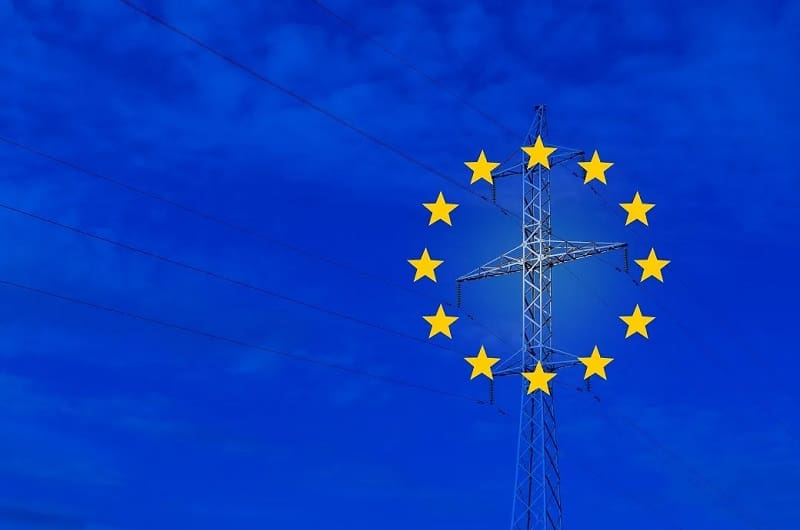
-Haartz partners with GTT to scale waterless textile finishing
Green Theme Technologies Inc. (GTT), a pioneer in waterless and PFAS-free textile finishing, and The Haartz Corporation, a global leader in highly engineered and distinctively designed textile materials, have announced a collaboration to transform the way textiles are finished in the US. GTT’s PFAS-free and waterless EMPEL™ textile finishing platform, the first of its type in the North American market, provides best-in-class performance while removing dangerous chemicals from all layers of textile finishing without the use of water. Europe-energy -Textile-Recycling
The EMPEL platform, created by GTT, can apply a wide range of finishes to an almost infinite number of fabrics, including Durable Water Repellent, Anti-Wicking, Durable Stain Release, and more. Per- and polyfluoroalkyl substance (PFAS) pollution is eliminated by EMPEL using sustainable “clean chemistry” during the textile manufacturing process through a waterless process.
Martin Flora, VP of Business Development for GTT, said that Haartz is the ideal partner for GTT. Through its top-notch production and testing facilities, they are the global leader in growing completed fabric technology. Their partnership introduces textile innovation to North America and helps produce a good and significant environmental effect through their many product categories, which include clothing, furniture, and automobiles.
EMPEL employs a nontoxic, water-free hydrocarbon monomer solution that polymerizes when applied to textiles, coating each individual yarn with a high-performance finish, according to independent research by Bureau Veritas and Okeotex. According to testing, EMPEL provides a longer-lasting protective finish than the C0 and C6 fluorocarbon water repellent alternatives.
The adoption of high-performance and sustainable solutions is being led by forward-thinking companies like Haartz as PFAS prohibitions spread across the nation and the globe.
Currently, performance clothing companies like Black Diamond, TREW Gear, Stoney Creek, and Artilect sell clothing items that incorporate EMPEL. The EMPEL technique has only one US license, and Haartz intends to increase manufacturing with a number of well-known companies. Europe-energy -Textile-Recycling
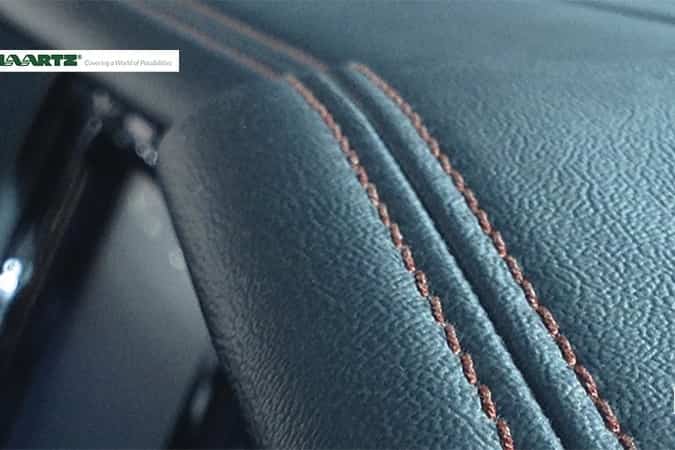
Infinited Fiber Company is preparing to build the line in Veitsiluoto, Kemi, with a planned regenerated textile fiber production capacity of 30,000 t/a. The plant will process recycled textile waste and is expected to operate at full capacity in 2025.
ANDRITZ proprietary equipment will be used in several processes at the new plant. The equipment was validated for Infinited Fiber Company’s technology under a cooperation agreement published in November 2020, and the order to supply pre-engineering was received in February 2022. Europe-energy -Textile-Recycling
“ANDRITZ’s equipment and process portfoli o offers good opportunities for the textile fiber production technology, and the cooperation with Infinited Fiber Company is a significant step towards scaling up a new type of textile fiber. Textile waste collection will become mandatory in the EU in 2025, and we are able to offer various technologies for recycling of textile waste and other bio-based raw materials to produce new bio-based fibers” says Kari Tuominen, President and CEO of ANDRITZ Oy.
Textile recycling technologies are part of ANDRITZ’s comprehensive product portfolio of sustainable solutions that help customers achieve their own sustainability goals in terms of climate and environmental protection.
Infinited Fiber Company (infinitedfiber.com) is a fashion and textile technology group operating in the field of textile recycling and regenerated fiber production. Its innovation transforms cellulose-rich materials worn-out clothes, used cardboard, and wheat or rice straw into Infinna™, a premium cotton-like textile fiber. Infinna™ is biodegradable, contains no microplastics, and textiles made with it can be recycled in the same process.
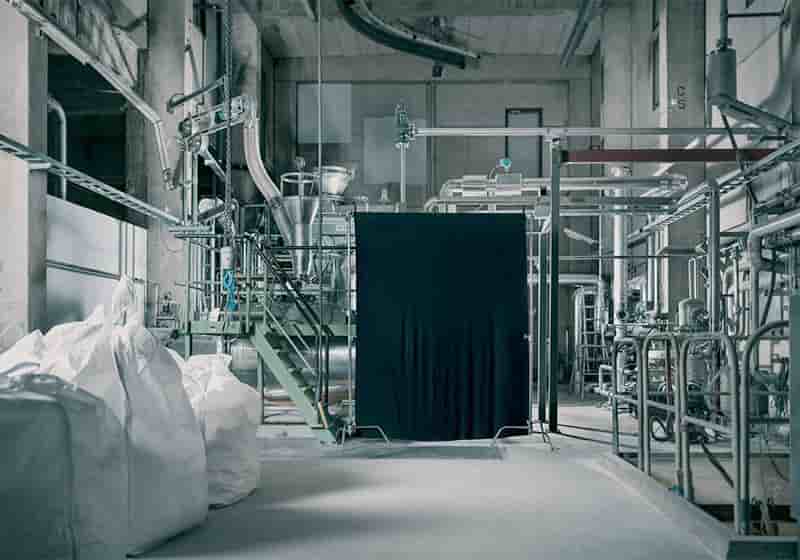
-Technip Energies and APChemi collaborating to commercialize plastic waste-to-olefins technology
Technip Energies (Paris) and APChemi Pvt Ltd. have entered into a cooperation agreement to commercialize APChemi’s advanced plastic waste to high quality pyrolysis oil technology, in conjunction with Technip Energies’ pyrolysis oil upgradation and steam cracking technology, said the company. Europe-energy -Textile-Recycling
APChemi’s patented “Pyromax™” pyrolysis technology for recycling plastic waste closes the gap in the plastic supply chain by taking dirty and mixed plastic waste, including municipal solid waste segregated plastics and multilayer packaging, and breaking it down to produce high quality pyrolysis oil which can be chemically recycled into circular plastics. The process has a lower carbon footprint, as it displaces the need for crude-oil-based feedstocks for plastics manufacturing, while reducing the need for intensive plastic waste sorting.
Technip Energies is closing the circular loop from pyrolysis oil to polyolefins building blocks by bringing its ethylene furnace and steam cracker design expertise, along with the preparation and purification technologies. The Pure.rOil by T.EN purification technology ensures safe, reliable and optimized integration with crackers.
Bhaskar Patel, SVP of Sustainable Fuels, Chemicals and Circularity of Technip Energies, commented: “This strategic partnership with APChemi will provide Technip Energies’ clients with an additional option in our growing plastic waste-to-olefins solution portfolio setup around our Pure.rOil technology. It will help to solve the puzzle of circular economy by offering a waste-to-olefins solution, reducing carbon dioxide emissions and end-of-life plastic pollution. The approach is a way to achieve recycled content targets, while continuing the use of current packaging materials.”
Suhas Dixit, CEO of APChemi said: “We offer our full support to Technip Energies for extending this plastic waste to polyolefins solution. Our robust Pyromax™ technology would be an integral part of Technip Energies’ efforts to eliminate plastic pollution. This strategic collaboration will help us extend our leadership in pyrolysis technology beyond India. APChemi also intends to utilize this collaboration for building world-class pyrolysis oil manufacturing facilities in India and abroad.” Europe-energy -Textile-Recycling
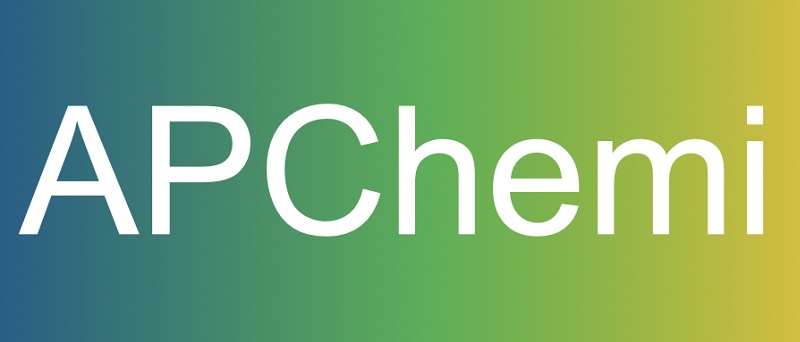
-A New Plant in Indiana Uses a Process Called ‘Pyrolysis’ to Recycle Plastic Waste. Critics Say It’s Really Just Incineration
After two years, Brightmark Energy has yet to get the factory up and running. Environmentalists say pyrolysis requires too much energy, emits greenhouse gases and pollutants, and turns plastic waste into new, dirty fossil fuels.
The bales, bundles and bins of plastic waste are stacked 10 feet high in a shiny new warehouse that rises from a grassy field near a town known for its bright yellow smiley-face water tower.
Jay Schabel exudes the same happy optimism. He’s president of the plastics division of Brightmark Energy, a San Francisco-based company vying to be on the leading edge of a yet-to-be-proven new industry—chemical recycling of plastic.
Walking in the warehouse among 900 tons of a mix of crushed plastic waste in late July, Schabel talked about how he has worked 14 years to get to this point: Bringing experimental technology to the precipice of what he anticipates will be a global, commercial success. He hopes it will also take a bite out of the plastic waste that’s choking the planet. Europe-energy -Textile-Recycling
“When I saw the technology, I said this is the sort of thing I can get out of bed and work on to change the world,” said Schabel, an electrical engineer.
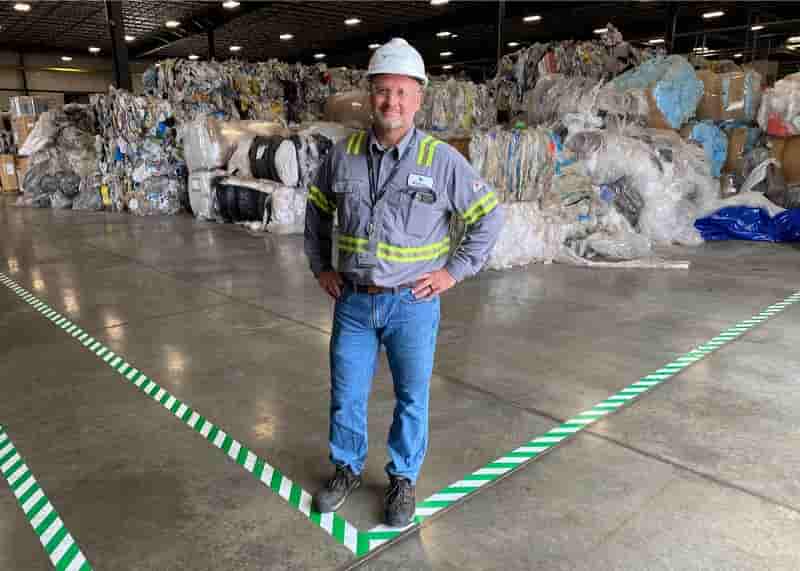
-Lehvoss Group adds compounding facility in China
German compounder builds new ‘high-tech’ centre in Shenzhen, southeastern China
Shenzhen, China – German compounder Lehvoss Group has strengthened its presence in China with the building of a new ‘high-tech’ centre in Shenzhen, southeastern China.
The new facility will manufacture high-performance compounds, 3D printing materials and masterbatches for the local high-tech industry, said Lehvoss in a recent statement.
This is the group’s fourth location in China in addition to its headquarters in Shanghai, a production facility and a technology centre in Kunshan and a sales office in Dalian.
“We are excited and happy about this foundation and the expansion of our activities in this important region in southern China,” said Xuesong Zhang, managing director, Lehvoss (Shanghai) Chemical Co., Ltd. Europe-energy -Textile-Recycling
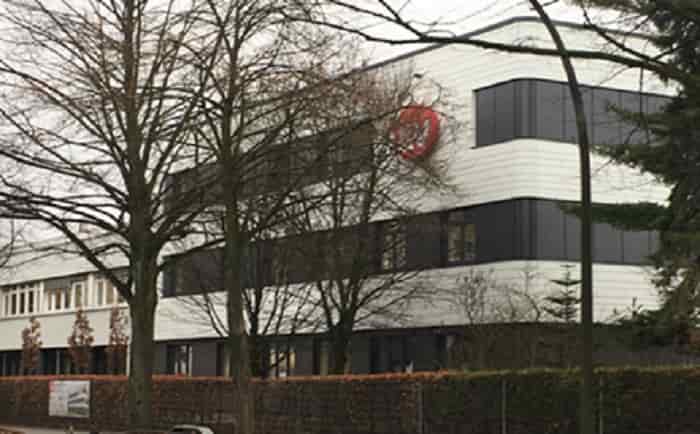
Europe-energy -Textile-Recycling
